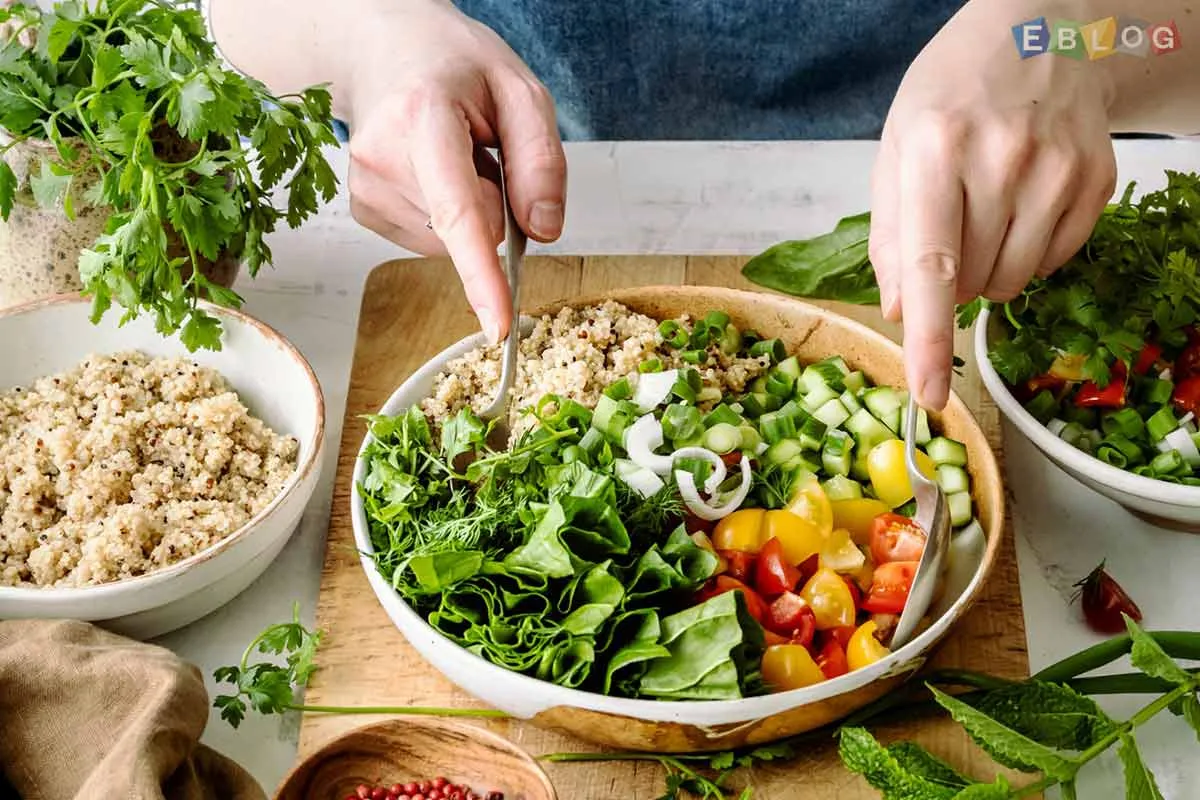
The Ultimate Guide To Heart Healthy Foods For Older Adults
- 05 Aug, 2024
- Food
- 570 Views
- 0 Comments
As we age, maintaining heart health becomes increasingly important. Heart disease is a leading cause of mortality among older adults, but the good news is that a heart-healthy diet can significantly reduce risk. This guide will explore the best foods for promoting heart health, providing practical tips for incorporating them into your daily diet.
1. Leafy Green Vegetables
Leafy greens like spinach, kale, and Swiss chard contain vitamins, minerals, and antioxidants. They are particularly high in vitamin K, which helps protect your arteries and promotes proper blood clotting. Including a serving of leafy greens in your meals every day can support heart health.
Tips for Incorporation:
a. Add spinach to your morning smoothie.
b. Use kale in salads or as a base for grain bowls.
c. Stir Swiss chard into soups or stews.
2. Whole Grains
Whole grains are a fantastic source of fiber, which can help lower cholesterol levels and reduce the risk of heart disease. Opt for whole grains like oats, brown rice, quinoa, and whole wheat over refined grains.
Tips for Incorporation:
a. Start your day with a bowl of oatmeal topped with fruits and nuts.
b. Substitute white rice with quinoa or brown rice in your meals.
c. Choose whole wheat bread and pasta.
3. Berries
Berries like strawberries, blueberries, raspberries, and blackberries are rich in antioxidants, vitamins, and fiber. They have been shown to reduce inflammation and improve heart health.
Tips for Incorporation:
a. Add berries to your breakfast cereal or yogurt.
b. Blend them into smoothies.
c. Enjoy them as a healthy snack or dessert.
4. Fatty Fish
Fatty fish like salmon, mackerel, sardines, and trout are high in omega-3 fatty acids, which can reduce inflammation and decrease the risk of heart disease. Aim to include fatty fish in your diet at least twice a week.
Tips for Incorporation:
a. Grill or bake salmon for a delicious and healthy dinner.
b. Add sardines to salads or whole grain crackers.
c. Make a tuna salad with Greek yogurt instead of mayonnaise.
5. Nuts and Seeds
Nuts and seeds are excellent sources of healthy fats, fiber, and protein. Almonds, walnuts, flaxseeds, and chia seeds can help lower cholesterol and improve heart health.
Tips for Incorporation:
a. Snack on a handful of almonds or walnuts.
b. Sprinkle chia seeds or flaxseeds over yogurt, oatmeal, or salads.
c. Use nut butter on whole grain toast or in smoothies.
6. Legumes
Beans, lentils, and chickpeas are high in fiber, protein, and essential nutrients. They can help reduce cholesterol levels and improve heart health.
Tips for Incorporation:
a. Add beans to soups, stews, and salads.
b. Make a chickpea-based hummus for a heart-healthy dip.
c. Use lentils as a meat substitute in dishes like tacos or burgers.
7. Olive Oil
Olive oil, particularly extra virgin olive oil, is rich in monounsaturated fats and antioxidants. It can help reduce inflammation and lower the risk of heart disease.
Tips for Incorporation:
a. Use olive oil as your primary cooking oil.
b. Drizzle olive oil over salads and vegetables.
c. Use it as a dip for whole grain bread.
8. Avocados
Avocados are a great source of heart-healthy monounsaturated fats and potassium, which can help lower blood pressure and reduce the risk of heart disease.
Tips for Incorporation:
a. Add avocado slices to sandwiches and salads.
b. Make guacamole for a healthy dip.
c. Spread avocado on whole grain toast for a nutritious breakfast.
9. Dark Chocolate
Dark chocolate, when consumed in moderation, can be a heart-healthy treat. It is rich in antioxidants and flavonoids, which can improve heart health.
Tips for Incorporation:
a. Enjoy a small piece of dark chocolate as an occasional treat.
b. Add dark chocolate chips to oatmeal or yogurt.
c. Choose dark chocolate with at least 70% cocoa content.
10. Conclusion
A heart-healthy diet is not only about avoiding certain foods but also about incorporating nutrient-rich options that promote cardiovascular health. By making these heart-healthy foods a regular part of your diet, you can support your heart and overall well-being as you age. Remember, it's always best to consult with a healthcare provider before making significant changes to your diet, especially if you have existing health conditions.
11. Final Thoughts
Maintaining a balanced and varied diet is key to heart health. Coupled with regular physical activity and a healthy lifestyle, these dietary choices can help you lead a longer, healthier life. Start incorporating these heart-healthy foods today and take proactive steps towards a healthier heart!















Leave a Reply